Pylos Greece
January 2020
Voidokilia Cove - in the Gialova Lagoon Natura 2000 site - definitely one of the most beautiful beaches in Greece. And the walk above the beach on the limestone crags is probably one of the most enchanting nature hikes in the country as well. The other aspect here is the climate - its warm in winter...I mean a good 17 C on the mid-January visit we made; and one of us even had a swim in the sea!
It's one of those places where there is a lot of new tourism development happening on the coast - building has begun recently you can sense this; however much is still so idyllic. An evolving Mediterranean community that needs close observation and a helping hand in conservation.
 |
| Well...Hi and Happy New Year to everyone!!! - This is our first work-related trip this year ...the lovely town of Pylos. We wish all our friends to keep travelling, naturing, loving life in 2020! |
 |
| On the limestone hill the spectacular old Navarino castle - first build by the Franks in the 13th Century. Beyond this the hills and cliffs of Sfakteria Island, Navarino Bay. |
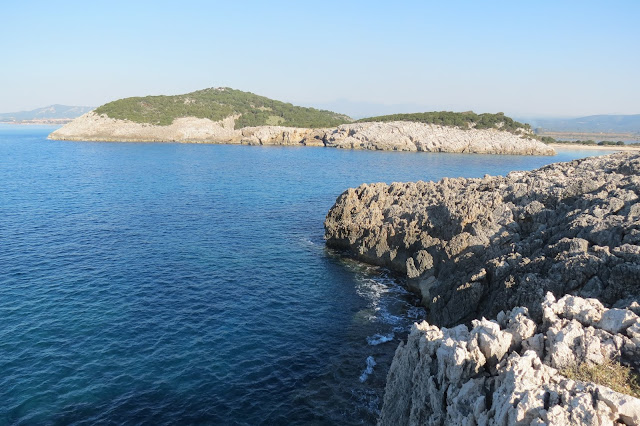 |
| The entrance to Voidokilia bay. Tooth-sharp limestone crags. |
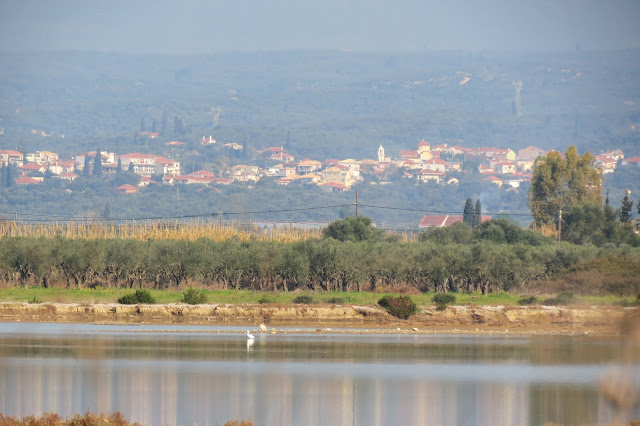 |
| Part of Gialova Lagooon, a famous wetland. Rich in birds; we easily spotted 25 species in less than an hour. |
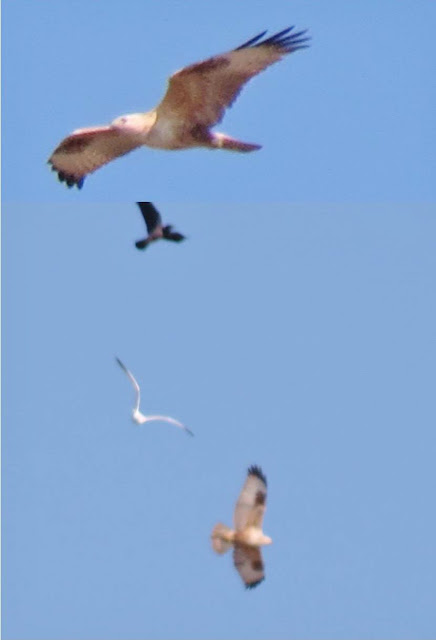 |
| Over Gialova Lagoon; a wonderful long-legged buzzard (Buteo rufinus), mobbed by crows and gulls (composite of two photos). |
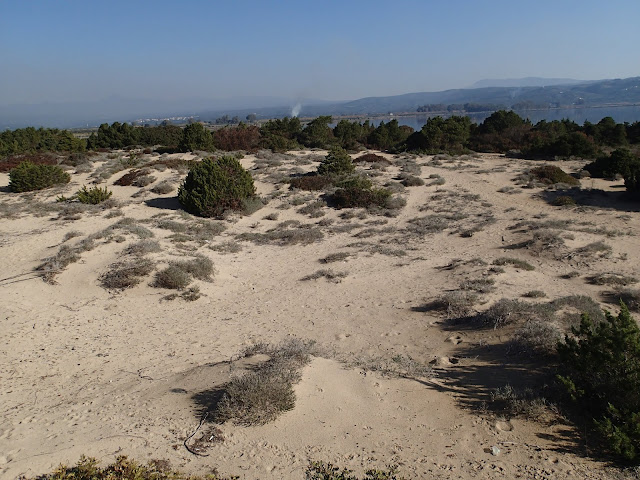 |
| Known since pre-classical times as Sandy Pylos. The dunes here are spectacular. |
 |
| This is Costa Navarino https://www.costanavarino.com/- a huge hotel complex that is the creator of the local long-term ecosystem observatory partner organization here- the Navarino Environmental Observatory (https://www.navarinoneo.se/). The ballance between nature and tourism development is not easy; they seem to be trying to harmonize things here. |
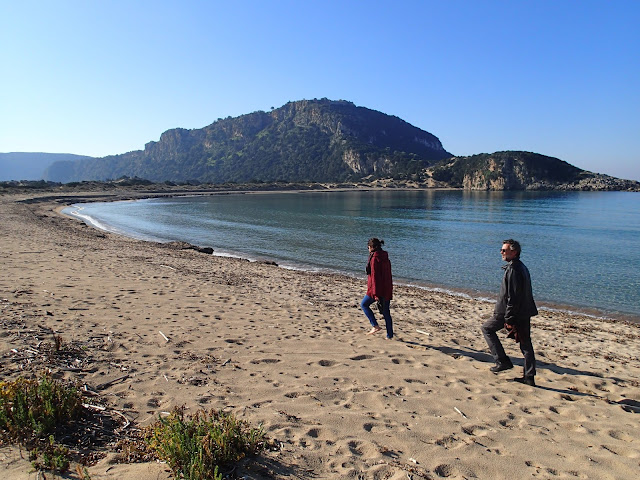 |
| Two seasoned travellers take a winter's walk on the beach: Voidokilia - alone. Don't come here in summer! |
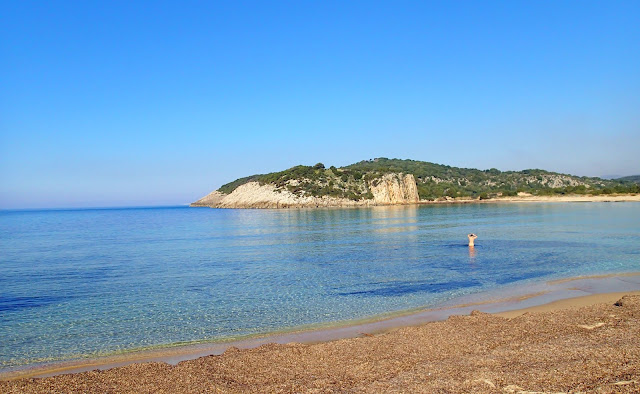 |
The water was crisp, gin-clear.
|
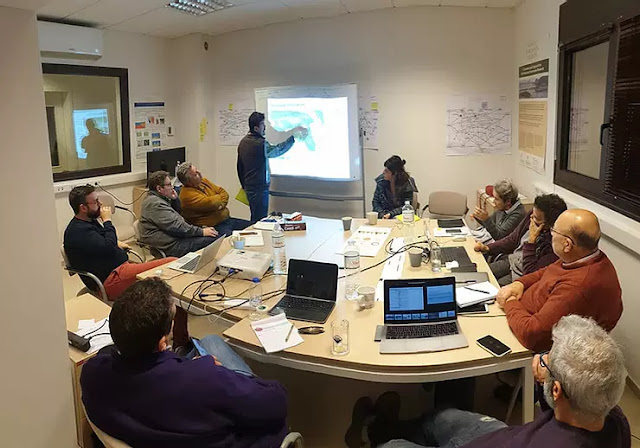 |
| LTER teamwork at the NEO fascilities. |
 |
This is part of the Long-Term Ecosystem Research (LTER)- Greece team above the lagoon of Gialova. Thanks to the local partner - Navarino Environmental Observatory (NEO) for the hospitality and guidance during the meeting (https://www.navarinoneo.se/).
|



